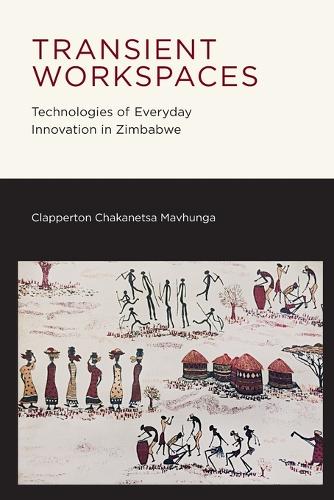
Transient Workspaces: Technologies of Everyday Innovation in Zimbabwe
(Paperback)
Publishing Details
Transient Workspaces: Technologies of Everyday Innovation in Zimbabwe
By (Author) Clapperton Chakanetsa Mavhunga
MIT Press Ltd
MIT Press
19th September 2014
United States
Classifications
Professional and Scholarly
Non Fiction
Intermediate technology
Impact of science and technology on society
609.6891
Physical Properties
Paperback
312
Width 152mm, Height 229mm, Spine 13mm
Description
An account of technology in Africa from an African perspective, examining hunting in Zimbabwe as an example of an innovative mobile workspace.In this book, Clapperton Mavhunga views technology in Africa from an African perspective. Technology in his account is not something always brought in from outside, but is also something that ordinary people understand, make, and practice through their everyday innovations or creativities-including things that few would even consider technological. Technology does not always originate in the laboratory in a Western-style building but also in the society in the forest, in the crop field, and in other places where knowledge is made and turned into practical outcomes. African creativities are found in African mobilities. Mavhunga shows the movement of people as not merely conveyances across space but transient workspaces. Taking indigenous hunting in Zimbabwe as one example, he explores African philosophies of mobilities as spiritually guided and of the forest as a sacred space. Viewing the hunt as guided mobility, Mavhunga considers interesting questions of what constitutes technology under regimes of spirituality. He describes how African hunters extended their knowledge traditions to domesticate the gun, how European colonizers, with no remedy of their own, turned to indigenous hunters for help in combating the deadly tsetse fly, and examines how wildlife conservation regimes have criminalized African hunting rather than enlisting hunters (and their knowledge) as allies in wildlife sustainability. The hunt, Mavhunga writes, is one of many criminalized knowledges and practices to which African people turn in times of economic or political crisis. He argues that these practices need to be decriminalized and examined as technologies of everyday innovation with a view toward constructive engagement, innovating with Africans rather than for them.
Author Bio
Clapperton Chakanetsa Mavhunga is Associate Professor of Science, Technology, and Society at MIT. He is the author of Transient Workspaces- Technologies of Everyday Innovation in Zimbabwe and the editor of What Do Science, Technology, and Innovation Mean from Africa, both published by the MIT Press.
